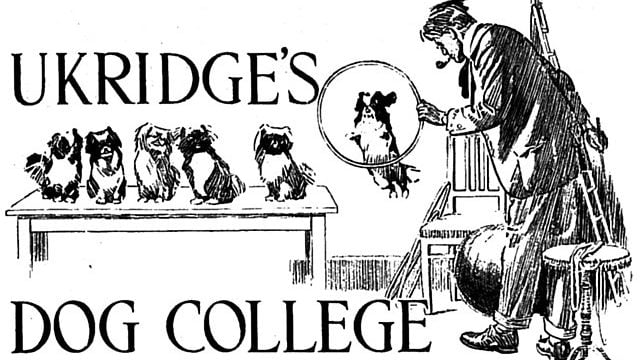It is unfortunate that P.G. Wodehouse’s reputation in Oxford takes such a blow from his being a popular favourite among OUCA members. Still, he ought to be more widely read for his indefatigable wit and his gift for plotting, metaphor, and comic characters. Many of his admirers will tell you that they were not born Wodehouse fans, but happened to read one of his books and were so delighted that they went on to plough through the remaining hundred “like a bullet through a cream puff”, and if you read the right Wodehouse books you will see what they mean.
I would draw the line short of those of his admirers who compare him without irony to Shakespeare. Inevitably for one who wrote so much (about a hundred books in a career that lasted from the Edwardian era to the 1970s) Wodehouse produced many duds. The worst of his novels are formulaic and, once you have read more than a handful, the jokes start to repeat themselves. This is even truer of the short stories. Though he wrote dozens of stories about Golf, Mr Mulliner, Bingo Little, and the Drones Club, all of them are more or less the same story repeated again and again. The only one of his memorable characters who breaks the mould, who manages to be funny and unique and thoroughly underrated, is Stanley Featherstonehaugh Ukridge.
Ukridge’s first ten adventures were collected in book form a hundred years ago this week. As a personality he probably owes something to the likeable scoundrels of Dickens’ novels – Jingle, Micawber, and others – although he also owes a great deal to A.J. Raffles, the gentleman thief of E.W. Hornung’s stories. At any rate he is the most unique character within Wodehouse’s own corpus. He is the only memorable one who is not rich and who never gets within signpost distance of a country-house. He is perpetually broke, and it is far more enjoyable to read about the schemes of a down-and-out scoundrel than the worries of an earl or a gentleman of leisure. If he is the most realistic and revisitable of Wodehouse’s characters, that is probably because he was the only one drawn from a specific personality (one Carrington Craxton) instead of from a caricature or a stereotype.
Most of the Ukridge stories concern get-rich-quick schemes, like a dog college (“I don’t see why eventually dog owners shouldn’t send their dogs to me as a regular thing, just as they send their sons to Eton and Winchester”); or an accident syndicate in which his friend fakes a car accident in order to nab the insurance money. All of the schemes end in disaster, but the background to that disaster, where the fatal seeds are planted and how they coalesce into a grand comic finale, is what makes each of the adventures so enjoyable.
Ukridge himself, with his yellow mackintosh and hearty optimism, is such marvellous company, and his relationship with the sarcastic narrator Corky is so charged, that personalities alone make the stories worth reading. The regular supporting characters are equally good fun. There is George Tupper, a schoolfriend at the Foreign Office; Bowles, the landlord who has an inexplicable soft spot for Ukridge; and Aunt Julia, fearsome aunt and popular novelist whose tense presence is never dull.
The few romantic stories featuring Ukridge are different from Wodehouse’s usual fare because they lack his usual sentimentality. Instead Ukridge gets his comeuppance, and everything comes crashing down into disaster. In “No Wedding Bells for Him”, he meets a girl in Clapham and ends up staying so long in her house for the free food that they become engaged; the relationship then ends with a fake heart attack, disinheritance by an aunt, and the return of a long-fought pawnbroker.
Ukridge’s funniest adventure, A Bit of Luck for Mabel (whose title can only be appreciated once you have read the story, and whose opening section contains some of the most crackling banter that the author ever penned) does not actually appear in the original book, and anyone who wants to read it can find it in Eggs, Beans and Crumpets. Otherwise, the ten best outings are those collected in Ukridge (1924), every page of which gleams with the personality of a great man, a manipulator, a visionary, a disaster, an optimist and a scoundrel.


